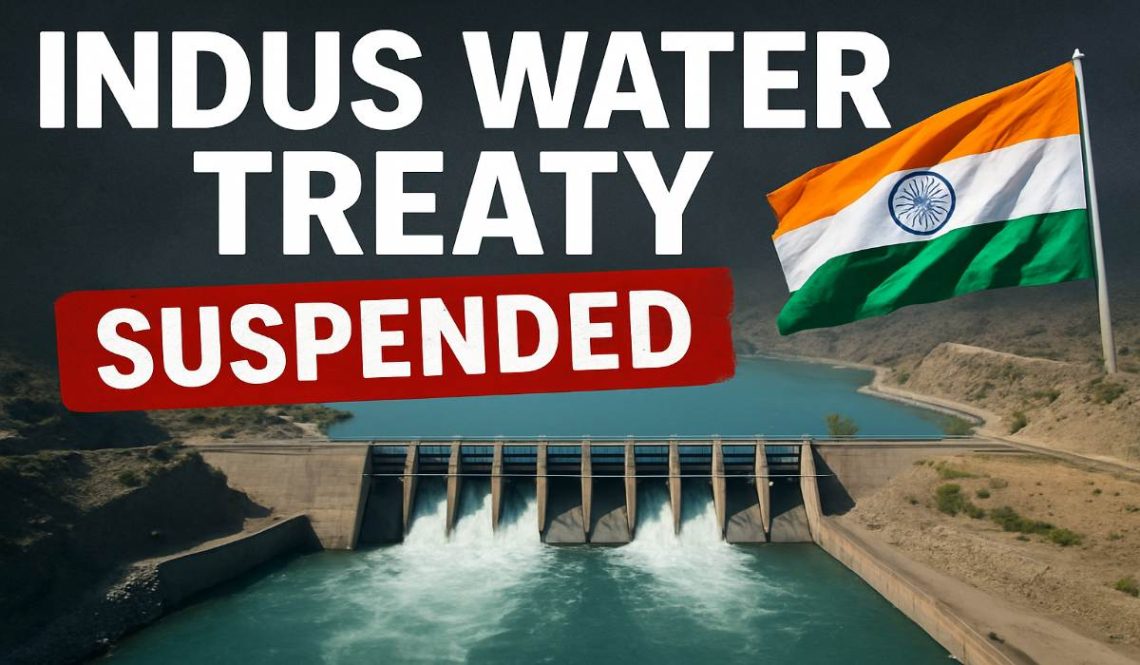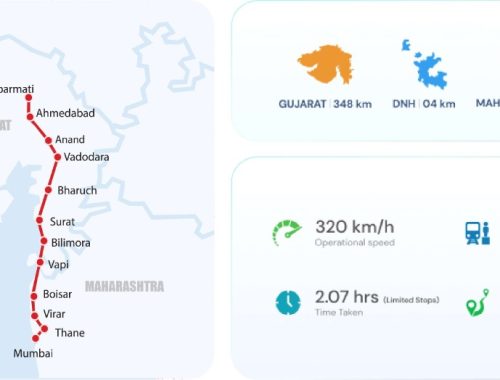
Indus Waters Treaty Suspended: India’s Big Move After Kashmir Attack Explained
In April 2025, India made a major move by suspending the Indus Waters Treaty (IWT) with Pakistan. This 60-year-old agreement had helped both countries share river water peacefully, even during wars. But after a deadly terrorist attack in Kashmir — which India linked to Pakistan — the decision to stop following the treaty has added new tension between the two countries.
This article explains what the treaty is, why India suspended it, how it affects both countries, and what could happen next.
What is the Indus Waters Treaty?
The Indus Waters Treaty was signed in 1960 between India and Pakistan. It was brokered by the World Bank.
Under the treaty:
- India gets the eastern rivers: Ravi, Beas, Sutlej
- Pakistan gets the western rivers: Indus, Jhelum, Chenab
Even when India and Pakistan went to war, this treaty continued. That’s why many experts call it one of the most successful water-sharing agreements in the world.
Why Did India Suspend the Indus Waters Treaty in 2025?
In April 2025, terrorists attacked a group of Hindu tourists in Pahalgam, Kashmir, killing over 25 people. India blamed the attack on Pakistan-based terror groups.
As a result, India announced the suspension of the Indus Waters Treaty, calling it a step toward ensuring national security. India also said it wants to stop giving Pakistan an “unfair advantage” when it comes to water.
“Terror and trade cannot go together, water and blood cannot flow together,” Prime Minister Modi said on Monday during an address to the nation.
Also Read: Turkey and Azerbaijan: India’s Boycott Over Pro-Pakistan Stance Raises Concerns
What Is India Planning Now?
After suspending the treaty, India is quickly working on major water projects to use more water from the western rivers (which earlier flowed freely to Pakistan). Some key projects include:
1. Ranbir Canal Expansion
- The canal will be doubled in size: from 60 km to 120 km
- Water flow will increase from 40 to 150 cubic meters per second
2. Hydropower Projects
- India is fast-tracking dams on rivers like Chenab, Jhelum, and Indus
- These projects will help India generate electricity and use more water
3. Tulbul Navigation Project
- This old project on the Jhelum River is back in discussion
- Leaders in Jammu & Kashmir are supporting it, though some parties are against it
How Is Pakistan Reacting?
Pakistan is very worried because the Indus River system is its main source of water. Here’s why the suspension affects Pakistan so deeply:
- 80% of Pakistan’s agriculture depends on these rivers
- Pakistan fears water shortages for farming, drinking, and energy
- The country has appealed to international bodies and urged India to reconsider
The World Bank, which helped create the treaty, has said India cannot suspend it unilaterally and both sides need to agree.
Takeaway
The Indus River Dispute of 2025 marks a major turning point in India-Pakistan relations. What was once seen as a strong example of peaceful water-sharing is now in question. As India pushes forward with big projects and Pakistan raises global concerns, the world will be watching how both countries handle this delicate situation.
Whether this turns into a water war or a chance for new negotiations will depend on smart diplomacy, public pressure, and international support.
Frequently Asked Questions (FAQs)
Q1. What is the Indus Waters Treaty?
It’s a 1960 agreement between India and Pakistan that divides the water from six rivers between the two countries.
Q2. Why did India suspend the treaty in 2025?
India suspended the treaty after a terror attack in Kashmir, which it linked to Pakistan. India said the move is part of national security policy.
Q3. How will this affect Pakistan?
Pakistan may face water shortages, especially in farming and power generation, if India reduces the river flow.
Q4. What are the key Indian projects planned after suspending the treaty?
India is fast-tracking water and power infrastructure:
- Ranbir Canal expansion
- Chenab and Jhelum hydropower dams
- Revival of Tulbul Project
These aim to utilize water that previously flowed unused into Pakistan.
Q5. What is the global reaction to India’s suspension of the treaty?
Global powers have called for restraint and dialogue. Environmental groups are also watching closely, concerned about the impact on ecology and downstream communities.
Khushi Jha
I am Khushi Jha, a proud alumna of Delhi University with a degree in History and Political Science. My fascination with the events that have shaped our world drives me every day. Currently, I am pursuing my Master’s in History, diving even deeper into global dynamics and the incredible heritage of India. I firmly believe that India's rich heritage deserves wider recognition. I strive to bring its stories to the forefront, ensuring they are celebrated and acknowledged on a global stage. I have written extensively across various niches, including fashion, health, lifestyle, real estate, hospitality, amongst others. In my free time, you’ll find me immersed in books, both fiction and non-fiction, or simply enjoying some much-needed rest.
You May Also Like

NAJ Cosfest 2025: A Complete Guide to Northeast India’s Biggest Anime and Cosplay Festival
June 11, 2025
India’s First Bullet Train Nearing Launch: Mumbai to Ahmedabad in Just 2 Hours
August 9, 2025


